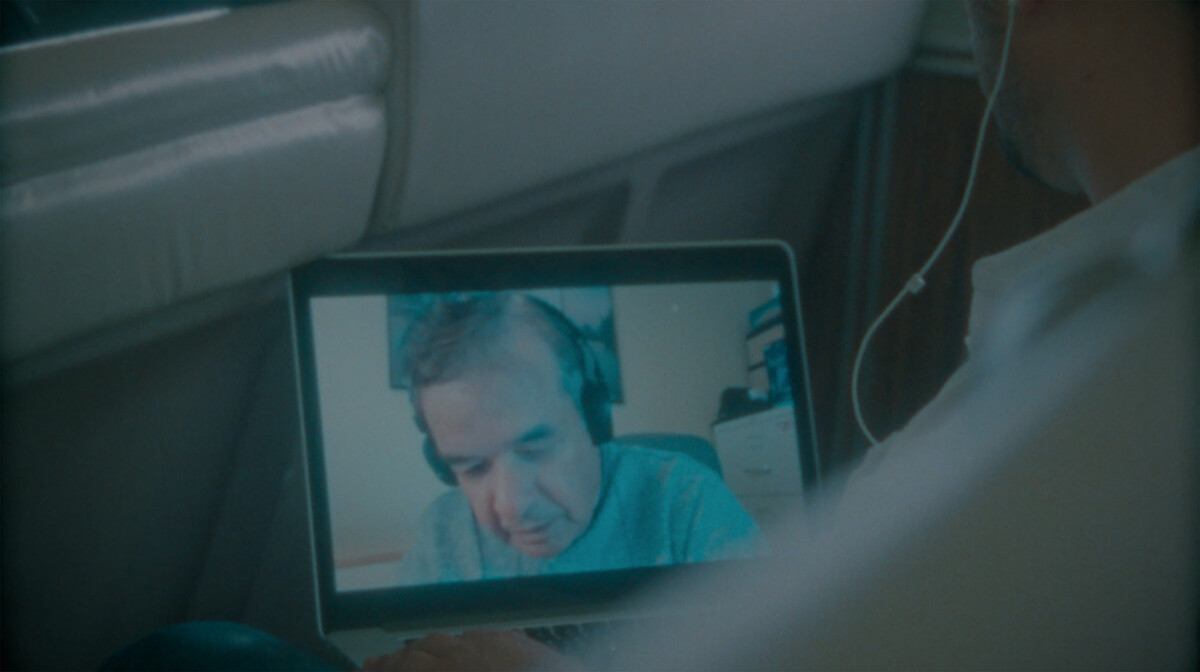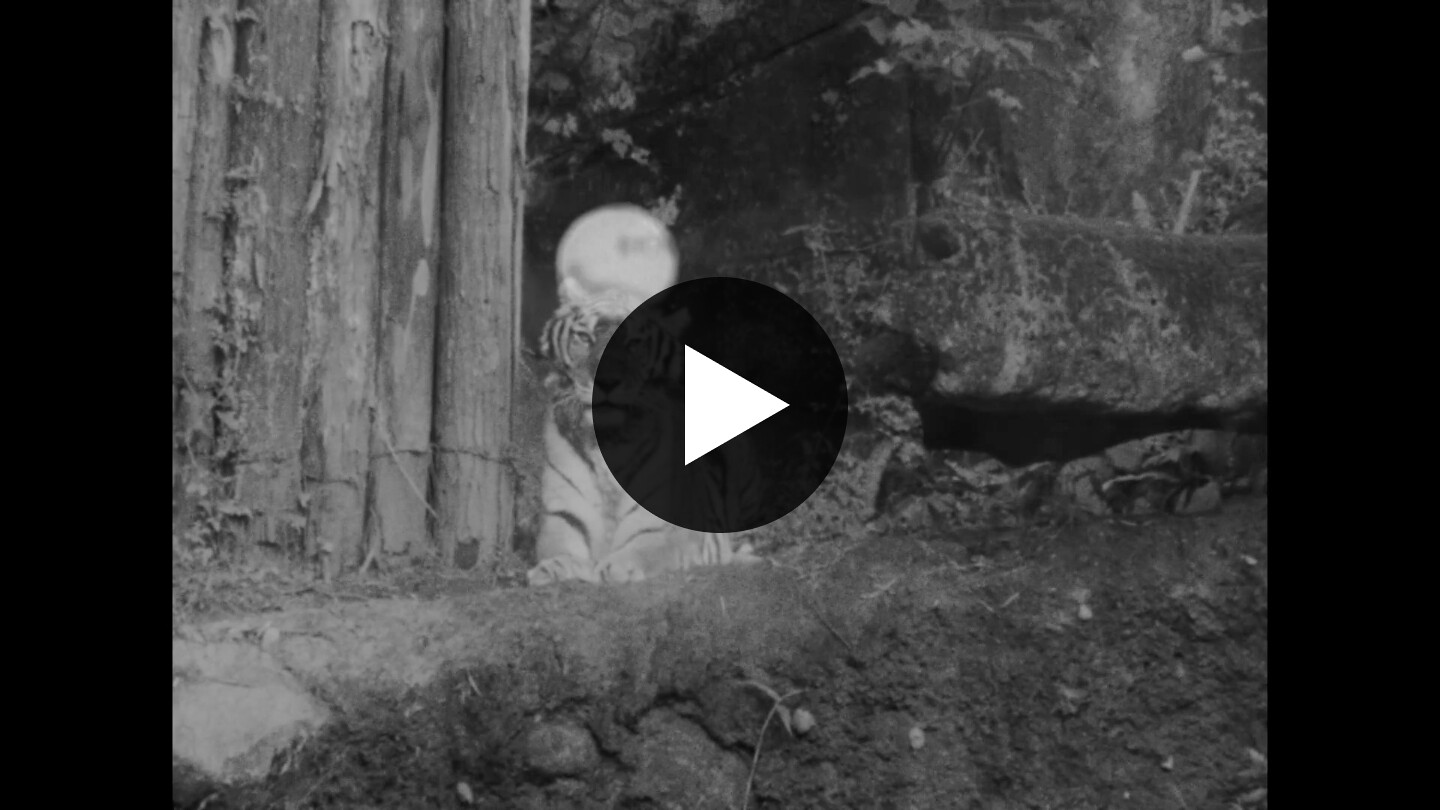Admission starts at $5
September 12, 2023, 7pm
Brooklyn, NY 11205
USA
Join us at e-flux Screening Room on Tuesday, September 12 at 7pm for Everywhere Was the Same, a screening program and discussion co-presented with ArteEast.
The program places Basma al-Sharif’s 2007 film Everywhere Was the Same in conversation with more recent films dealing with diaspora as an indefinite condition.
Basma al-Sharif has compared the diasporic condition to one of “bilocation,” the alleged psychic or miraculous ability to simultaneously inhabit two locations (places, temporalities, realities, identities). The works in this program explore how the trauma and political struggle of a people are borne by individuals in diaspora, often over generations. In Pegah Pasalar’s Lost in Her Hair (Monday), the hair to be tightly braided and covered for a child’s first day of school is furiously ripped from a hairbrush as the artist prepares to leave her country years later. In Mounira Al Solh’s Freedom Is a Habit I’m Trying to Learn, we accompany two women reflecting on the habits and behaviors of their strangely pleasant new lives. In Basma al-Sharif’s Everywhere Was the Same, a hypnotic, semi-fantastical account of an exodus from an unnamed place gives way to a historic speech, before switching mid-sentence to a song taking us back over the vivid folds of an embroidered dress. In Suneil Sanzgiri’s At Home but Not at Home, the virtual, dual condition of diaspora extends also to the return: If the void left by diaspora can be filled by other places, it is also haunted by the unrealized moments of history.
Everywhere Was the Same is co-presented by e-flux and ArteEast and curated by Amal Issa as part of the legacy program Unpacking the ArteArchive, which preserves and presents over seventeen years of film and video programming by ArteEast.
The program at e-flux Screening Room will be followed by a conversation with filmmakers Pegah Pasalar and Suneil Sanzgiri, moderated by writer Mirene Arsanios. The films will also be screened online on artearchive.org from September 13-20. For more information on the online screening, visit artearchive.org.
Films
Pegah Pasalar, Lost In Her Hair (Monday) (2019, 7 minutes)
Oscillating between home movie and autobiography, Lost In Her Hair (Monday) starts with an excited young Iranian girl getting ready for her first day of school. As her mother is brushing her hair and dressing her, she has varied conversations with off-frame family members. Halfway through, the film cuts to the grown up girl, isolated in a room, calling for a cab to an international airport.
Mounira Al Solh, Freedom Is a Habit I’m Trying to Learn: Rogine and Waad (2019, 24-minute excerpt from 43 minutes)
The artist spent 24 hours with each of four women—Rogine, Waad, Hanin, and Zeina—in the cities where they now live: Zutphen, Oslo, Washington DC, and Sharjah respectively. All four of them cannot live anymore in their countries of origin, Syria and Lebanon. Together, they share a moment of cooking, rolling on the floors of their new cities, talking about life, nothing and everything, their exile and their continuous aims. This screening presents the chapters featuring Rogine and Waad.
Basma al-Sharif, Everywhere Was the Same (2007, 11 minutes)
In an empty room, a slideshow projection of abandoned places plays alongside the narrative of two girls who find themselves on the shores of a pre-apocalyptic paradise. Told through subtitle text that weaves fact and fiction together, the story of a massacre unfolds. When the image and text malfunctions and the story is no longer comprehensible, the video wanders away from the room of the slideshow, allowing us to see what is happening elsewhere.
Suneil Sanzgiri, At Home But Not At Home (2019, 11 minutes)
In 1961, fourteen years after India gained independence from Britain, the Indian Armed Forces defeated the last remaining Portuguese colonizers in the newly formed state of Goa. The artist’s father was eighteen at the time, and had just moved away from his small village of Curchorem to Bombay for school when news reached him about his home—now free from the oppression of a foreign hand after 450 years of colonial rule. After spending years thinking about questions of identity, liberation, and the movement of people across space and time, the artist finds himself returning to this period in search of moments of anti-colonial solidarity across continents. His research took him from the shores of Goa, to Indonesia, Mozambique, and Angola, finding brief links between nascent liberation movements and his father’s biography. Combining 16mm footage with drone videography, montages from the “parallel cinema” movement in India, desktop screengrabs, and Skype interviews with his father, the resulting film utilizes various methods and modes of seeing at a distance to question the construction of artifice, memory, and identity through the moving image.
For more information, contact program@e-flux.com.
Accessibility
–Two flights of stairs lead up to the building’s front entrance at 172 Classon Avenue.
–For elevator access, please RSVP to program@e-flux.com. The building has a freight elevator which leads into the e-flux office space. Entrance to the elevator is nearest to 180 Classon Ave (a garage door). We have a ramp for the steps within the space.
–e-flux has an ADA-compliant bathroom. There are no steps between the Screening Room and this bathroom.

